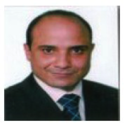TUTORIALS
1. “Methodology for Evaluating Experience of Mobile (Healthcare) Applications Used in Different Contexts of Daily Life”
Abstract
Many attendees at IEEE HealthCom conferences deal on a growing scale with development and evaluation of the mobile applications and services, and they will agree that a rigorous methodological approach towards a user experience “in the wild” is missing. In this course the attendees will learn a design and execution of empirical experiments to evaluate experience of mobile applications used in different contexts of daily life, as opposite to (theoretical) application’s simulation or modeling. The methodology is based on a mixed methods approach: qualitative and quantitative methods. This course firstly presents a generic methodology for measurements-based performance evaluation of a mobile communication system and its service(s), and for evaluation of user experience, and second, it presents two case studies of application of this methodology. The performance evaluation aims at analysis of, for example, mobile system bottleneck or scalability characteristics, or at analysis of its application response time, as these metrics contribute to the overall experience of the mobile service use. The presented methodology has been derived from previous studies on performance of communication networks and QoE/QoS evaluation in a large-scale user studies using Experience Sampling Method and Day Reconstruction Methods. The methodology includes detailed steps for objectives determination, system instrumentation, and measurements execution and performance evaluation activities. The course illustrates use of the methodology for a performance evaluation of MobiHealth system and its vital sign tele-monitoring service provided to a mobile patient wearing a Wireless Body Area Network, and for entertainment, information and communication applications evaluated in a large-scale Android users study.
|
Short Bio
Dr Katarzyna Wac is a senior computer scientist currently associated with Institute of Services Science at University of Geneva (Switzerland). In 2009-2010 she has visited the Human-Computer Interaction Institute at Carnegie Mellon University. In 2003 she has received a BSc and MSc degree in Computer Science from Wroclaw University of Technology (Poland), and in 2004 MSc in Telematics from University of Twente (the Netherlands). In 2009 she has defended her PhD thesis in Information Systems at University of Geneva. Her research focuses on measurements-based methodologies for an evaluation of performance of interactive mobile applications and its relation with the end-user perceived experience. She builds tools that predict application’s performance and hence facilitate development of mobile computing applications that improve end-user perceived experience. |
 |
2. "Health Care Collaborative Networked Organization"
Abstract
The major motivation of this course is to determine the essential features that must be considered in order to automate the Collaborative Networked Organization (CNO) construction. This course aims to provide (semi) automated support for dynamic adaptive intelligent virtual organizations thus by, utilizing CommonKADS knowledge modeling methodology for representing knowledge as a way to interchange knowledge between CNO partners.
|
Short Bio
Morcous M. Yassa is an Egyptian researcher, Postgraduate diploma in computer science, from ISSR, Cairo University, Egypt in 1999. M.Sc in computer science, from ISSR, Cairo university, Egypt, in 2005. PhD in computer science from Faculty of Computers and Information, Cairo University (until now). Morcous has been published many research papers scientific journals and conferences. Morcous interests are Knowledge modeling, sharing and reuse, Intelligent information retrieval, Software Engineering, Service Oriented Architecture (SOA), Virtual Organizations, and Grid& Cloud Computing. |
 |
3. "Introduction to openEHR - Main Concepts, Tools and Archetype/Template Creation"
Abstract
The openEHR standard is an open specification that describes the management and storage, retrieval and exchange of health data in electronic health records. It aims to store all health data in a "one lifetime", vendor-independent, person-centred EHR. The openEHR specification is not concerned with the exchange of data between EHR-systems but mainly on how the information is stored. In this tutorial you will learn:
- The structure of the openEHR layers;
- How to create openEHR archetypes and templates using the available tools;
- And, the freely available APIs to use to automatically generate forms or web-services.
Target Audience: health informatics professionals that do not have experience with openEHR and aim to understand the fundaments of this standard. This tutorial is not intended to people that already have experience with openEHR.
|
Short Bio
Ricardo Correia is computer scientist with a PhD in the integration of hospital Information Systems. He has a position as an Assistant Professor at the Health Information and Decision Sciences Department at the Faculty of Medicine of the University of Porto. He more than 50 indexed (Medline, Scopus or ISI) publications. He has been deeply involved in the implementation and the coordination of departmental electronic patient records (obstetrics, intensive care units, pneumology, and breast cancer), integrated hospital information systems and multi-centre web-based information systems for clinical research. He is currently deeply involved in the coordination of a Master Degree on Medical Informatics that is currently in its 8th edition. He has recently started the Portuguese group of openEHR that aims to promote this standard nationally. |
 |
4. "Designing an Information Accountability Framework for eHealth"
Abstract
This tutorial is primarily based on the IEEE eHealth technical committee Newsletter published in March 2013. Its main focus is on information privacy management in eHealth through information accountability. The tutorial consists of three main aspects of a proposed information accountability framework for eHealth, namely, social aspects, technical aspects and legal aspects. Following a brief introduction of the problem domain and context, we present the tutorial in these three main components. |
|
Short Bio
Tony Sahama is a senior lecturer in the Information Security Discipline, Faculty of Science and Engineering. His research interest is in Health/Medical Informatics in particular, Healthcare Information Technology (HIT) and Clinical Decision Support Systems design and development. Tony holds a PhD in Computer Science (Computer Simulation and Modelling, DACE), Master of Education (Higher Education), M.Phil (Statistical Computation) and B.Sc. (specialised in Applied Statistics and Computer Programming). Tony has experience working with researchers in developing customised technological applications for Clinical Decision Support Systems, Data warehousing, Data Integration and IT applications for healthcare decision making processes. Currently, Tony is supervising 4 research masters and 4 PhD level projects in the Medical Informatics research area. Tony holds professional membership with ACM (SIGBioinforamtics), IEEE, IBS, ACS, SSAI and HISA.
|
 |
|
|





